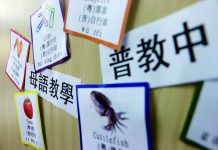How the social and legal impact of the right of abode saga still affects us today
By Katie Cheng & Catherine Chiang
On July 1 1997, the Union Jack was lowered and the flag of the People’s Republic of China raised over Hong Kong – ushering an end to 156 years of British rule and the birth of the Hong Kong Special Administrative Region. Two days later, on the first working day after the handover, hundreds of people, many of them children, lined up outside the Immigration Department in Wan Chai to claim the right of abode in Hong Kong.
It was the beginning of a saga which would drag on for years, colour the relationship between Hongkongers and Mainlanders and have implications for Hong Kong’s rule of law that legal experts say are still being felt today.
The 1984 Sino-British Joint Declaration on the future of Hong Kong stated that the children of Hong Kong permanent residents of Chinese nationality, who were born outside of the territory would have the right of abode in Hong Kong. This was later incorporated in the Basic Law, under Article 24. With the Basic Law now in effect, these children were claiming their residency rights.
This sparked fear of a massive influx of abode-seekers from the Mainland among the public and the government. Within the space of just one week, the Provisional Legislature – an interim appointed body that replaced the pre-handover Legislative Council – ruled that abode-seekers would have to first return to the Mainland and obtain a “Certificate of Entitlement” before they could come to Hong Kong. The abode-seekers fought repatriation and took their case to the courts. A series of legal battles culminated in the Court of Final Appeal’s ruling on January 29 1999 in favour of the children.
But it turned out that the Court of Final Appeal’s decision was not final. In May 1999, then Chief Executive Tung Chee-hwa sought an interpretation of Article 24 by the National People’s Congress Standing Committee (NPCSC). The interpretation overturned the Court of Final Appeal’s ruling so that only those mainland children born after either of their parents obtained permanent residency in Hong Kong were entitled to the right of abode.
Barrister and former Legislative Council Legal Functional Constituency representative Margaret Ng Ngoi-yee says this set a bad precedent. “The first interpretation cast a very long shadow over the rule of law in Hong Kong,” says Ng. There have been seven interpretations since then.
Ng, who represented some of the abode seekers in court, is particularly irked that the Chief Executive referred the matter to the NPCSC, when according to the Basic Law, that should be a decision for the Court of Final Appeal to make. “It’s [done] without a referral. It’s freestanding,” Ng says. “However independent your judges, some political organisation in the Mainland can tell you what to do.”
Ng adds that after the 1999 interpretation, lawyers representing the government have used the possibility of going to the NPCSC for interpretation as a threat to the courts.
Ng was not alone in believing the government had undermined the Basic Law and sacrificed Hong Kong’s rule of law for the sake of convenience. The legal profession held its first silent march in protest against the interpretation. But despite support from her peers on the interpretation issue, Ng came under political pressure and under fire from society at large for helping the abode seekers. But she has no doubt that no matter how tough the fight was, it was one that needed to be fought.










































